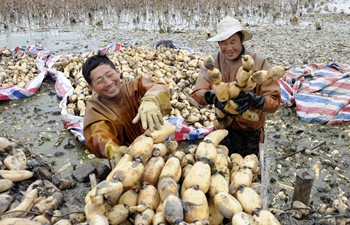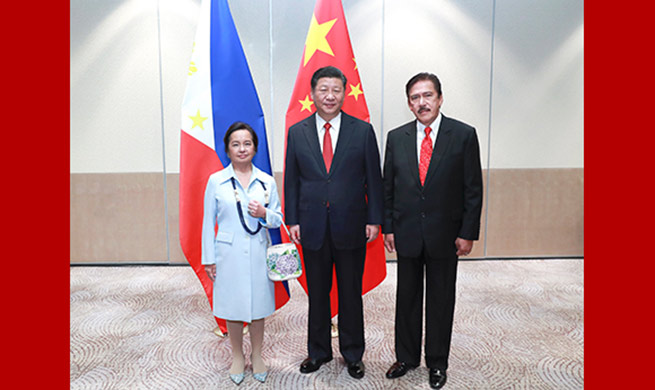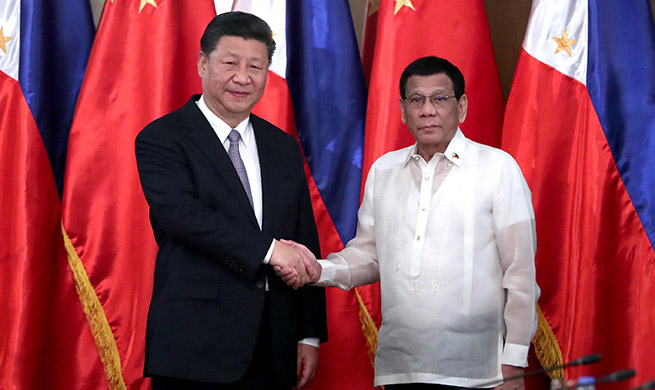ULAN BATOR, Nov. 22 (Xinhua) -- Mongolia's economic growth has been recovering rapidly thanks to the recovery of commodity prices in the global market and the International Monetary Fund (IMF)'s economic bail-out program for the country, a Mongolian economic researcher said.
"Mongolia's main economic performance has been improving thanks to the combination of recovery of commodity prices in global market and the three-year Extended Fund Facility of the IMF approved in 2017," Jamsrandorj Delgersaikhan, associate professor with the University of Finance and Economics of Mongolia, told Xinhua in a recent interview.
"A recent report released by the National Statistics Office showed that Mongolia's GDP expanded 6.4 percent year on year in the third quarter of this year to 12.8 trillion Mongolian tugriks (about 5 billion U.S. dollars). This is a clear proof of the rapid economic growth," Delgersaikhan said, while expressing his optimism about the country's economic development next year.
"Commodity prices in the global market are expected to remain higher next year. This will give a further boost to Mongolia's economic growth," Delgersaikhan said.
The landlocked country's economy is heavily dependent on commodity exports.
However, domestic political conflict may cause risks to the economic growth, the researcher added.
"For any country, political stability is the basis of socio-economic development. Thus, our authorities should firstly create a stable political environment in order to promote economic growth, diversify the mining-dependent economy and reduce external risks to the economy," Delgersaikhan said.













